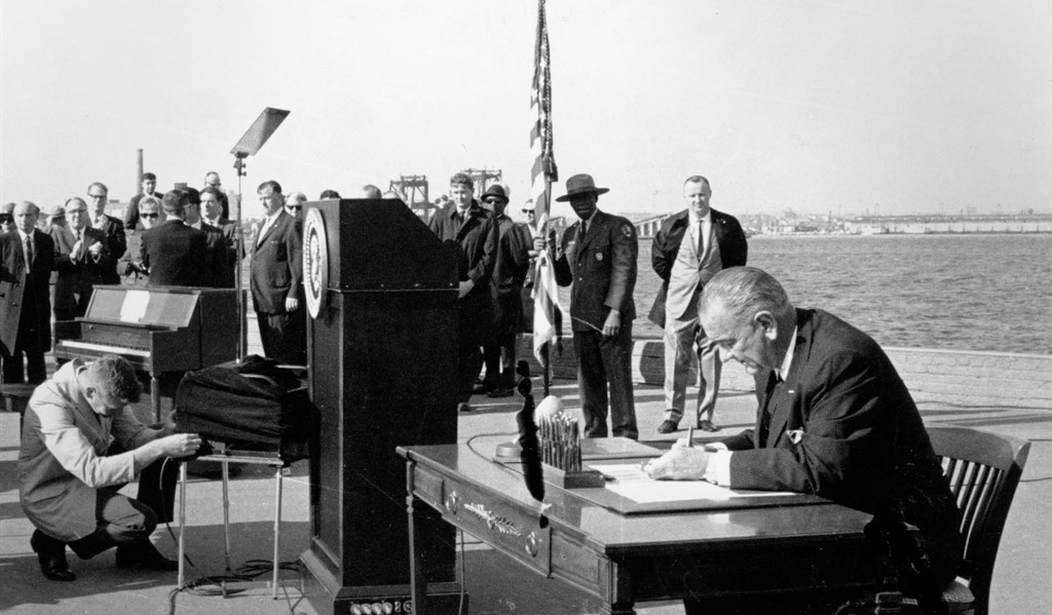Two of the oldest and most venerated public policy institutes in Washington, D.C., the American Enterprise Institute and the Brookings Institution, have produced a new joint report dealing with the issue of fighting poverty in America.
The report, "Opportunity, Responsibility, and Security: A Consensus Plan for Reducing Poverty and Restoring the American Dream," is noteworthy for a number of reasons. One is that it reflects a consensus view between long established Washington institutions representing opposite sides of the political spectrum, with AEI being right of center and the Brooking Institution left of center.
But also noteworthy is the nature of this consensus. The report focuses on three pillars that need attention: family, work, and education.
That scholars from these two institutions -- one on the left and one on the right -- agree that the state of the American family is of critical importance to the economic well-being of Americans is news. It drives home a point I have been making for years -- that so-called values issues, often called "social issues," are indeed economic issues. The popularly accepted dichotomy between economic issues and social issues is invalid. They are of the same cloth.
Poverty became a major focus of attention in Washington in 1965 when President Lyndon Johnson announced his program known as the "War on Poverty."
Like in this new report, Johnson's program emphasized the importance of education, the development of work skills and the availability of jobs and employment in hard-hit communities.
But unlike this new report, in Johnson's war on poverty there was zero focus on the importance of the traditional American family to fighting poverty and enhancing economic vitality.
Recommended
Why?
Because in 1965 the state of the American family was healthy compared to today and no one would have dreamed where things would go. The traditional values so critical to the nation's welfare were largely taken for granted.
As the AEI/Brookings report points out, in 1970, 61.2 percent of women ages 20-24 were married compared to 15.9 percent in 2010. In 1970, 79.7 percent of women ages 30-34 were married compared to 40.4 percent in 2010.
In 1970, 5.7 percent of white babies and 37.6 percent of black babies were born to unwed mothers. By 2010, white out-of-wedlock births rose to 35.9 percent and black out-of-wedlock births rose to 72.1 percent.
"By 2013," the report states, "at nearly $107,000, the average married family with children had nearly three times the income of the average single-mother family with children ($35,654). Similarly, between 1974 and 2013, the average poverty rate of single-mother families was usually between four and five times higher that the poverty rate of married-couple families."
The conclusion: "There now appears to be widespread and growing agreement among scholars that the best environment to rear children is the stable, two-parent family."
In other words, the great new insight of modern scholars is that the Judeo-Christian traditions on which our nation was built work!
Johnson's war on poverty followed the civil rights movement and the social unrest of the 1960s. Rather than concluding that it was necessary to bring what was working in America -- traditional values, limited government, personal responsibility -- to those parts of the nation that were not working, we ushered in a new era of big-government solutions.
These big-government solutions undermined the traditionally successful values and institutions of the country. Little was done to eradicate poverty but much was done to break down the American family and add hundreds of billions in new spending to the federal budget.
Fortunately, as this new AEI/Brookings report shows, many are now waking up.
New young leaders, particularly in the Republican Party, are breaking through to shine new light that family, ownership, and personal initiative and responsibility pave the promising path to rebuilding the broken parts of America.

























Join the conversation as a VIP Member